Publisher 2010 -
Creating a New Publication

Publisher 2010
Creating a New Publication


/en/publisher2010/producing-a-publication/content/
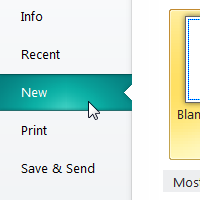
In the previous lesson, you learned about planning and designing a publication. With that knowledge, you're now ready to create a new publication.
In this lesson, you'll learn how to create a new publication using either a template or a blank page. You'll also learn how to customize your publication by modifying page layout, applying a new template, and adding, deleting, and rearranging pages.
Publisher offers dozens of templates for almost any type of publication you would want to create, including brochures, newsletters, and greeting cards. Of course, if you can't find a template you like you can always modify one to suit your needs or even create a publication from a blank page. Understanding Publisher's templates and layout tools will help you create publications that look the way you want.
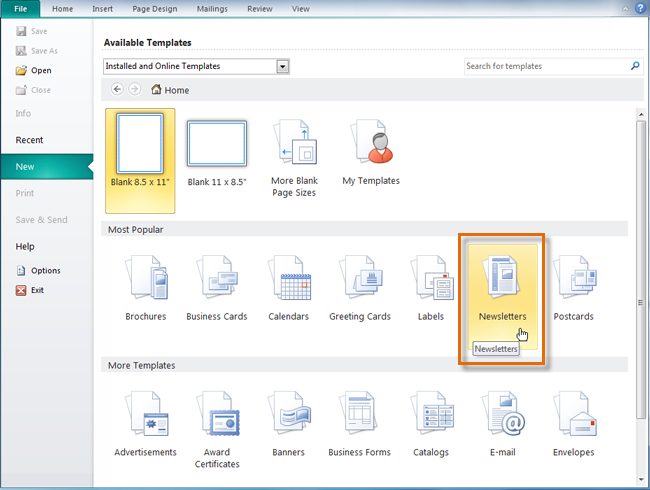 Available template types
Available template types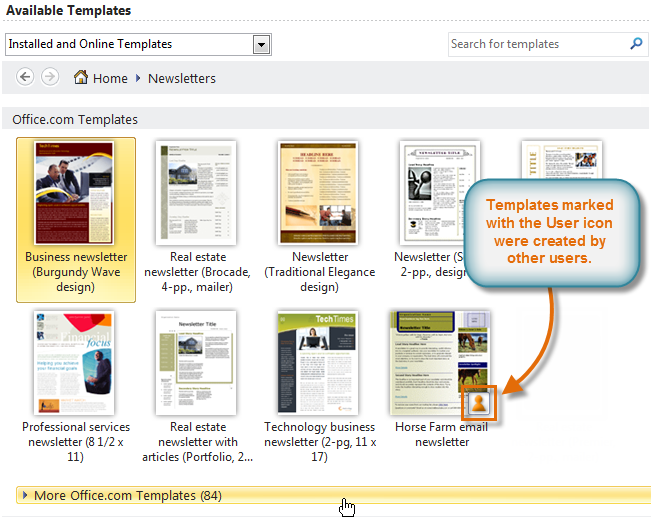 Office.com templates
Office.com templates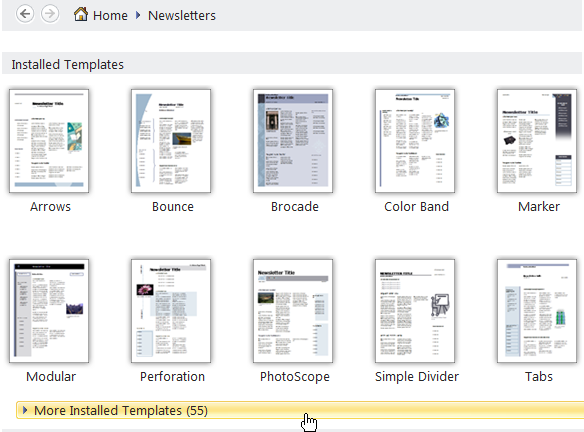 Templates already installed on your computer
Templates already installed on your computer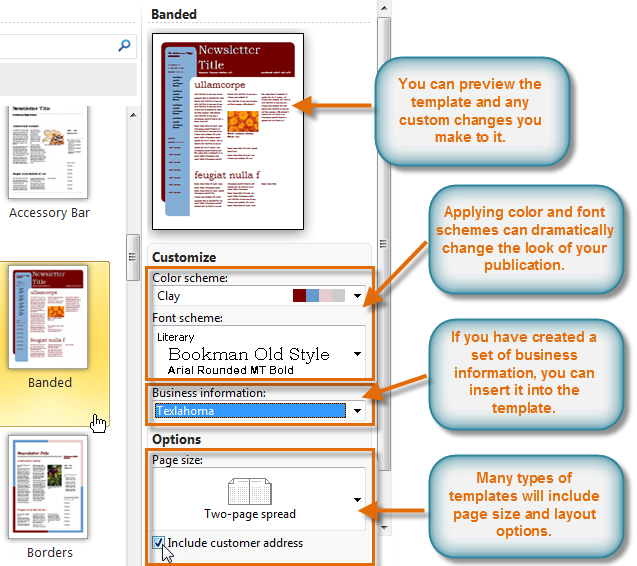 Previewing and customizing the template
Previewing and customizing the template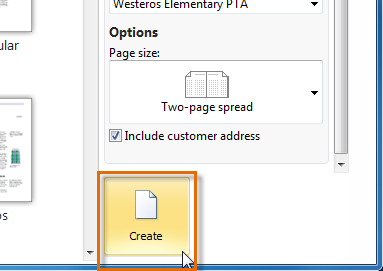 The Create button
The Create button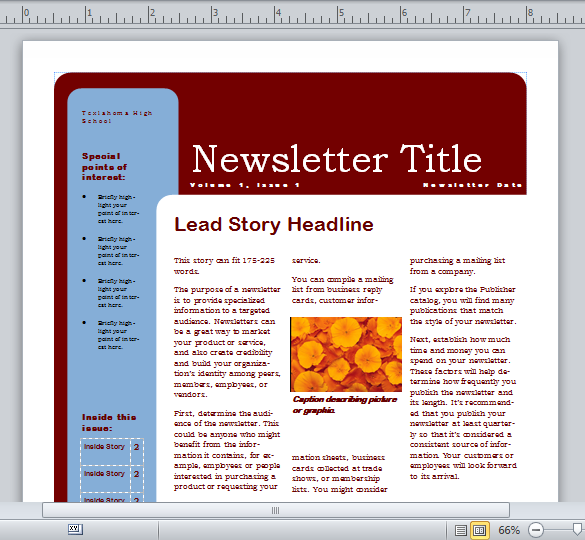 The created publication
The created publicationDepending on the type of publication you create, your template may offer more customization options than shown in the example above.
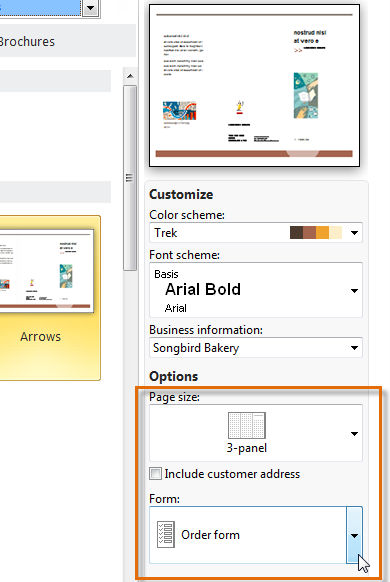 Additional options for a brochure template
Additional options for a brochure templateIf you don't want to use a template or can't find a template that suits your needs, you can create a blank publication. Remember, when you create a blank publication you will have to set up page margins, add guides, and make all layout and design decisions on your own.
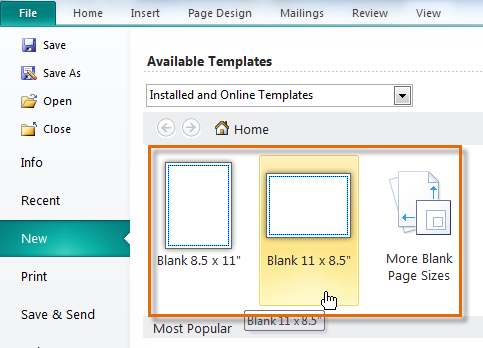 Creating a publication from a blank page
Creating a publication from a blank pageWhether you chose to create a publication from a template or from a blank page, you may decide to change the publication layout. Three components you can change are margins, size, and orientation. Although you can modify these settings at any time, you should be careful if your publication already contains objects like text, images, and shapes, as you'll have to adjust them to fit the new layout.
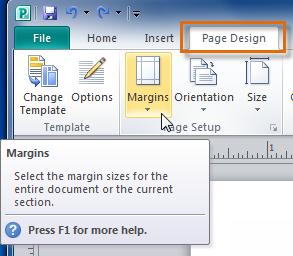 The Margins drop-down command
The Margins drop-down command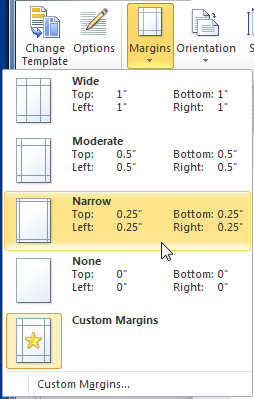 Margin width options
Margin width options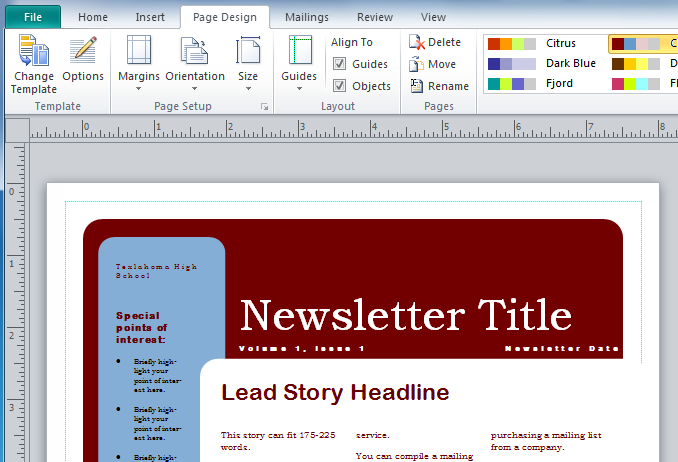 The new, narrower margins have been applied
The new, narrower margins have been appliedIf you are not satisfied with any of the margin options, select Custom margins... to open the Layout Guides dialog box. There, you can specify margin widths.
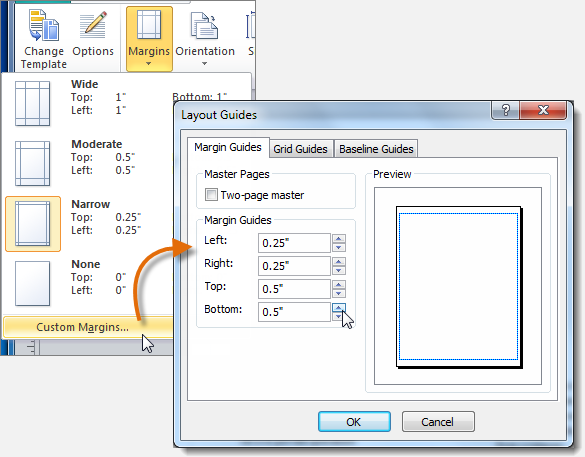 Setting custom margins
Setting custom margins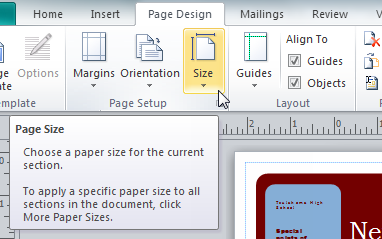 The Size drop-down command
The Size drop-down command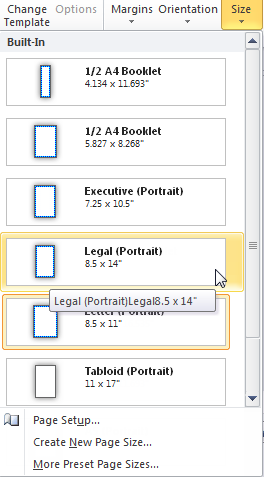 Page size options
Page size options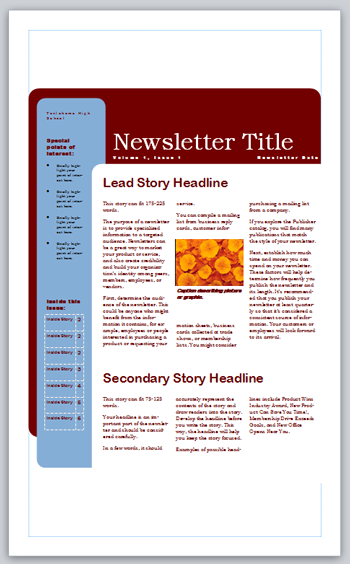 The publication, now on a larger page
The publication, now on a larger pageIf the desired page size isn't included in the drop-down list, select More Preset Page Sizes... to view a larger list of page sizes.
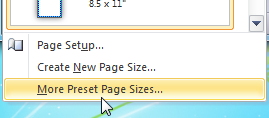 More page sizes
More page sizes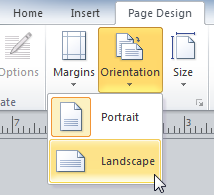 Page orientation options
Page orientation optionsDepending on the template you chose, changing the page orientation may have a negative effect on your presentation. While some templates work equally well in both orientations, others do not.
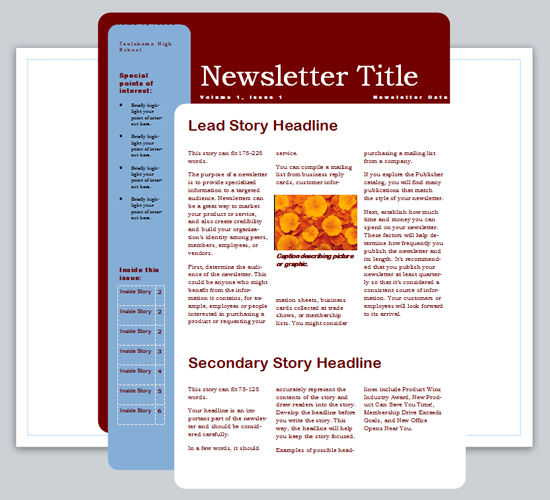 Objects in this template fit poorly with the landscape orientation.
Objects in this template fit poorly with the landscape orientation.If you create a publication from a template and later decide the chosen template doesn't quite suit your needs, you can always change it. You can also apply templates to publications that were originally created from blank pages.
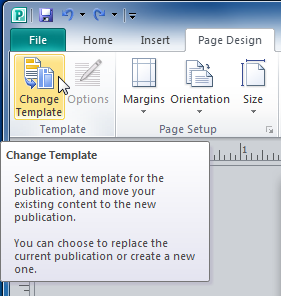 The Change Template command
The Change Template command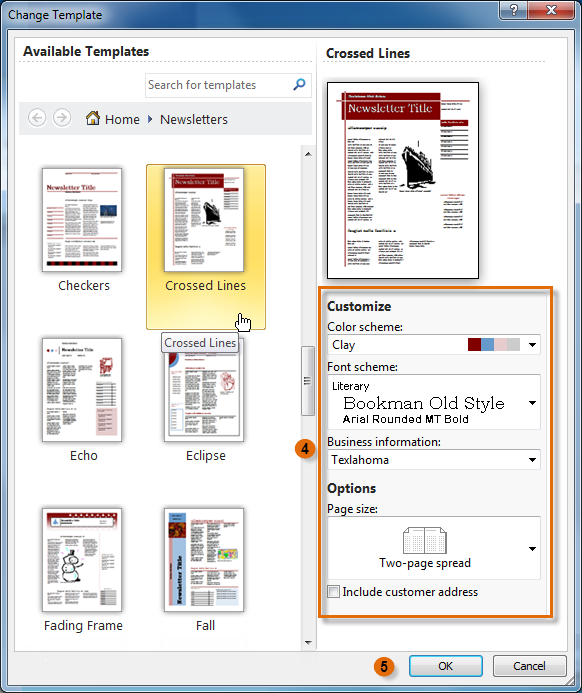 Selecting and modifying a template
Selecting and modifying a template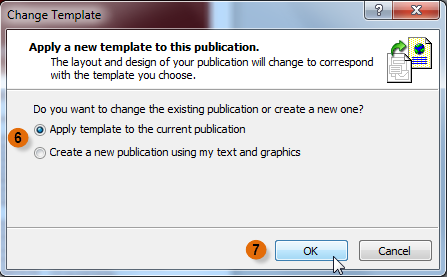 Template options
Template options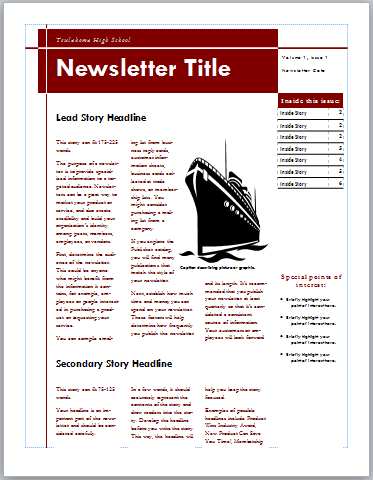 The new template
The new templateIf you're creating a newsletter or another type of publication with multiple pages, you might find the Page Navigation pane useful. The Page Navigation pane gives you a way to view and scroll through the pages in your publication. It also includes features that let you add, move, and delete pages.
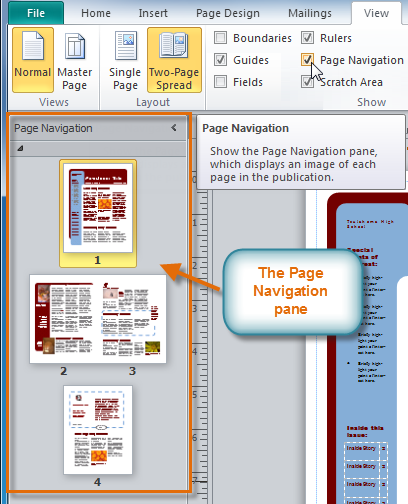 The Page Navigation pane
The Page Navigation pane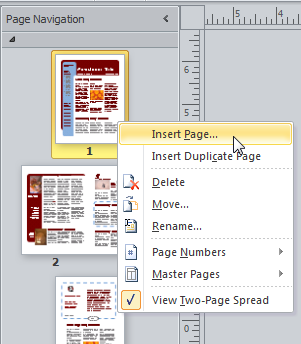 Inserting a new page
Inserting a new page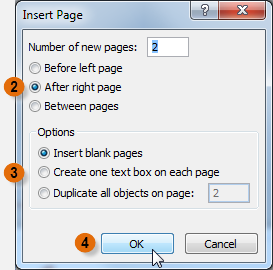 The Insert Page dialog box
The Insert Page dialog box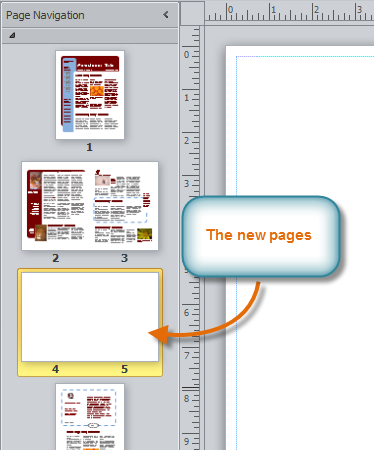 The new blank pages
The new blank pagesDepending on the template you're using, when you add a new page you may see a dialog box with page layout options.
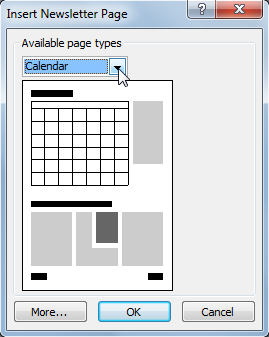 This Insert Page dialog box includes layout options
This Insert Page dialog box includes layout options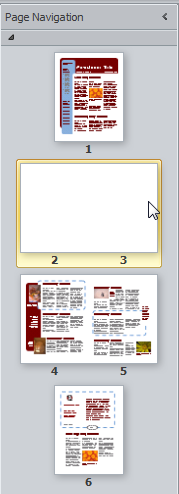 Selecting the page to move
Selecting the page to move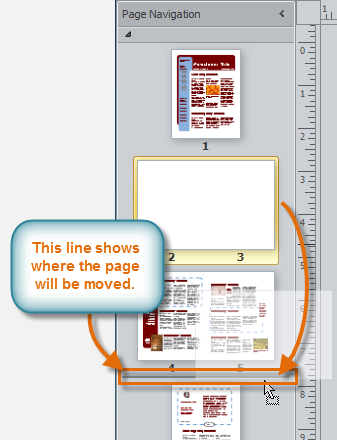 Dragging the page to its new location
Dragging the page to its new location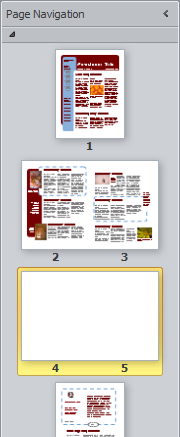 The new page order
The new page order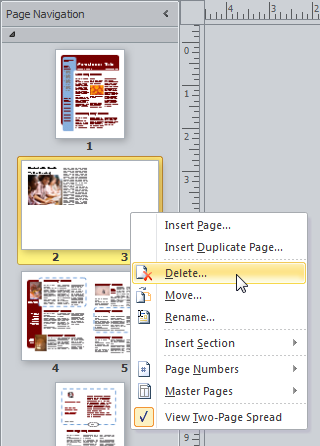 Deleting a page
Deleting a page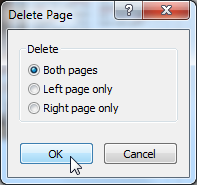 Choosing which pages to delete
Choosing which pages to delete/en/publisher2010/working-with-text/content/